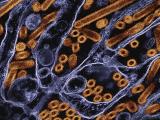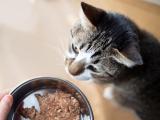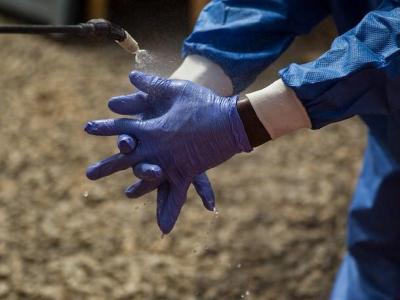Jun 1, 2010
Hong Kong kills poultry slaughterhouse plan, citing low avian-flu risk
Hong Kong's government said today it has decided to cancel plans for a centralized poultry slaughtering facility because the risk of avian influenza has dropped and the facility will not be commercially viable. In a government news release, Dr. York Chow, secretary for food and health, said the isolation rate for H9N2 avian flu viruses in retail poultry has dropped from 5.11% before major control measures were adopted in 2008 to 0.09% recently. He said the risk of human infection with avian flu is very low. In 2008 the government banned keeping poultry overnight in retail markets and introduced a buyout scheme for live poultry markets, which greatly reduced their number. Chow credited these and other control measures for the decrease in H9N2 virus findings. He also said consumers have shown a growing preference for frozen and chilled chicken over live chickens in recent years, and added, "We have conducted a commercial viability study which concluded it is not commercially viable to run a poultry slaughtering centre in Hong Kong." Chow did not refer to H5N1 avian flu, for which Hong Kong conducts intensive surveillance. That virus was found in a barn swallow in March but has not been reported in poultry in the region this year, according to the World Organization for Animal Health. Several mild human cases of H9N2 infection have been reported in Hong Kong in recent years.
Researchers say influenza A nucleoprotein is potential drug target
A Hong Kong University research team, writing in Nature Biotechnology, reports that the nucleoprotein component of influenza A viruses is a potential drug target and that a small-molecule compound called nucleozin shows promise as a weapon against it. Nucleoprotein facilitates the virus's entry into the cell nucleus, assists in viral transcription and genome replication, and facilitates viral genome assembly, according to a University of Hong Kong news release. The researchers identified nucleozin by screening a library of more than 50,000 compounds developed during research on SARS (severe acute respiratory syndrome). The team says that nucleozin inhibits the aggregation of nucleoprotein and its accumulation in the nuclei of host cells. The compound impeded viral replication in cell culture and protected mice that were given normally lethal doses of H5N1 avian flu virus, the report says. The researchers recommend investigating the nucleoproteins of other viruses as possible targets for small-molecule compounds.
May 30 Nature Biotechnology abstract
Produce business expert says strengthening FDA won't make food safer
Jim Prevor, founder and editor of Produce Business magazine, writes that giving the US Food and Drug Administration (FDA) more power—as proposed in the FDA Food Safety Modernization Act now before the Senate—will do little to make produce safer. Writing online recently in The New Atlantis, a journal dedicated to clarifying the moral and political understanding of technology, Prevor asserts that nothing can make fresh produce absolutely safe, but recommends several steps to make it safer than it is. His first recommendation is to change the legal framework for produce safety so that liability is not wholly fixed on producers but is shared by wholesalers and retailers, thereby giving the latter more of an incentive to buy only the safest products. Another is to increase the reliability of food safety certifications by rooting out bribery and corruption in agencies that certify products. Other steps Prevor recommends are to increase the capacity of state laboratories that investigate disease outbreaks, revitalize the Agricultural Extension Service so it can teach farmers about best practices for food safety, and provide more food-safety education for consumers. Prevor writes on food safety at PerishablePundit.com.
















